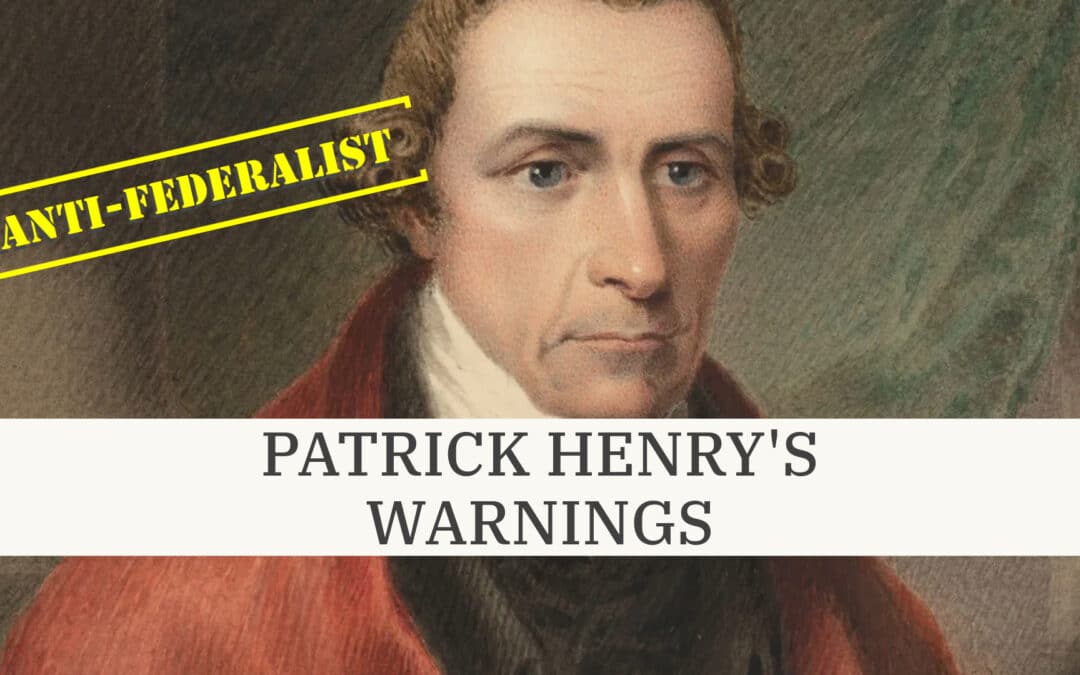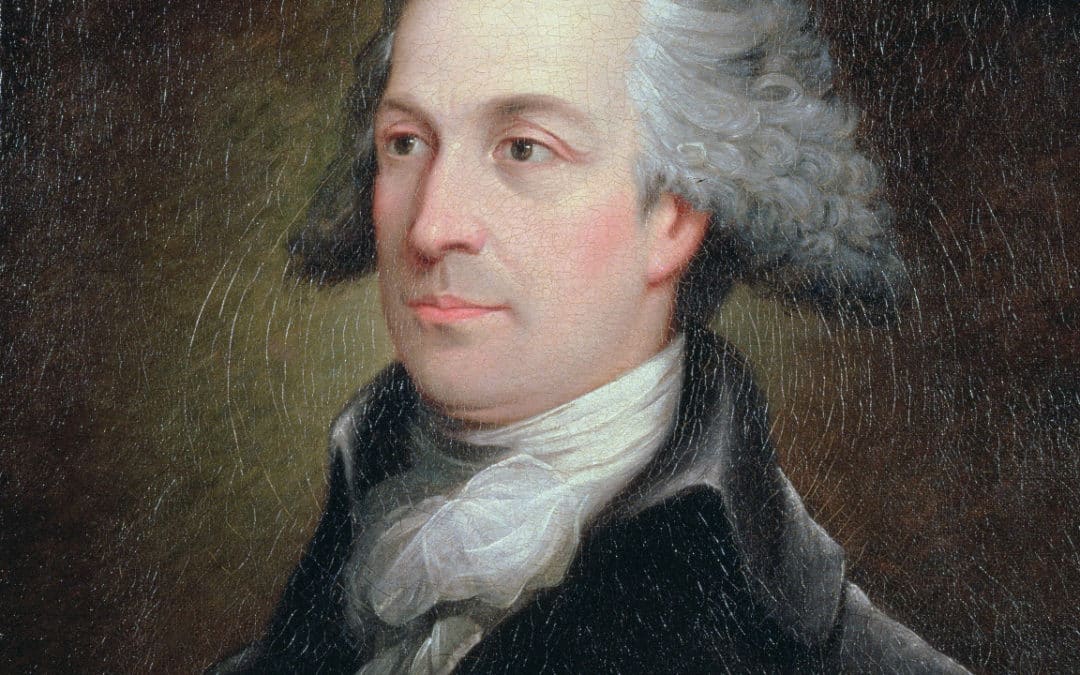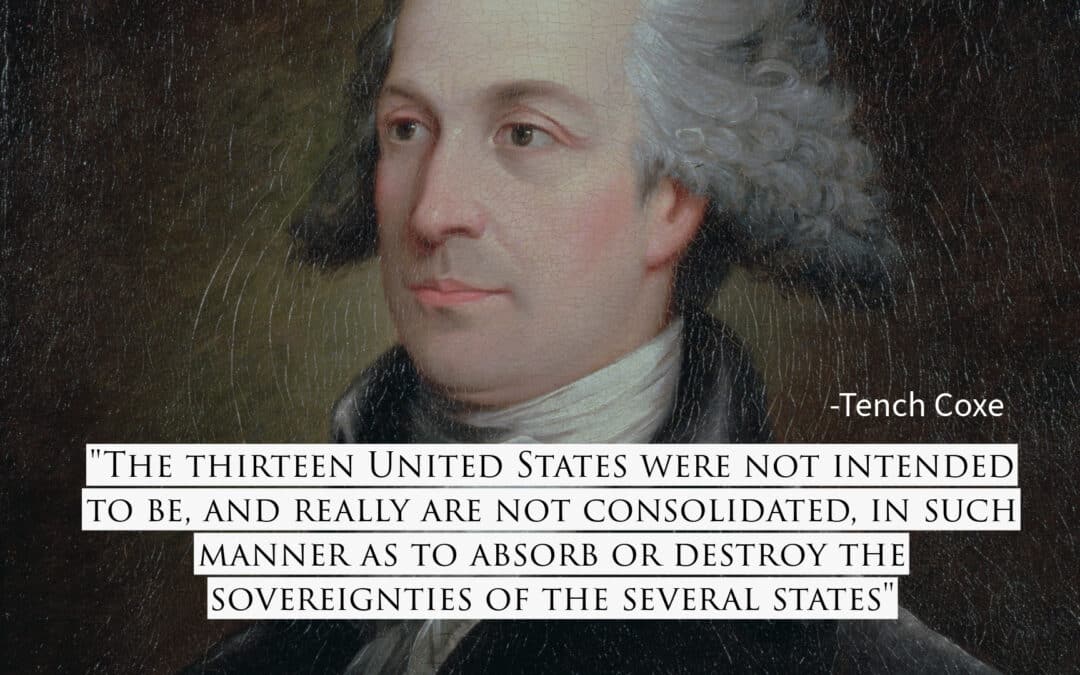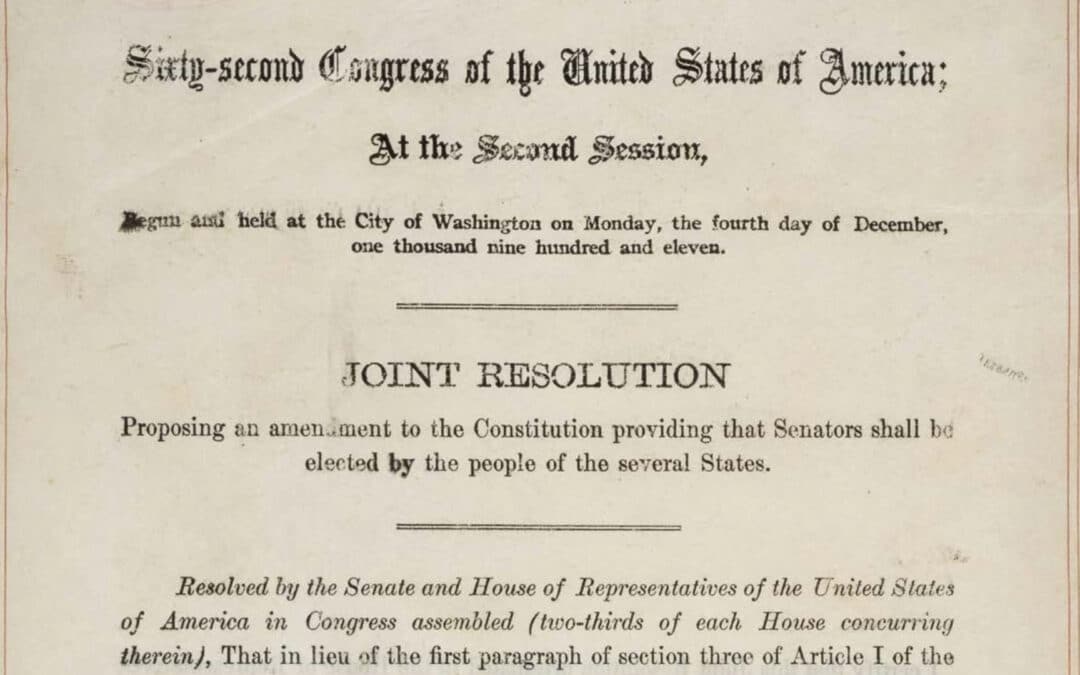


Tench Coxe: Originalism and the Founders’ Understanding of the Constitution
“Their swords, and every other terrible implement of the soldier, are the birth-right of an American.” If he’s even remembered at all today, people today generally look at Tench Coxe as the founder who forcefully advocated for the natural right to keep and bear arms....
Tench Coxe: A Detailed Breakdown of State vs. Federal Powers
Despite being little known today, Tench Coxe was an influential founding father, and in early 1788, he provided what was possibly the most comprehensive list of examples to explain the division of state and federal powers under the proposed Constitution. In his three...
17th Amendment: How it Broke the Safeguard Against Consolidation
When the framers designed the Senate, they envisioned it as a safeguard for the states, with a key component being state legislatures choosing senators instead of the people at large. Federalists repeatedly assured the Anti-Federalists that because of this structure,...
